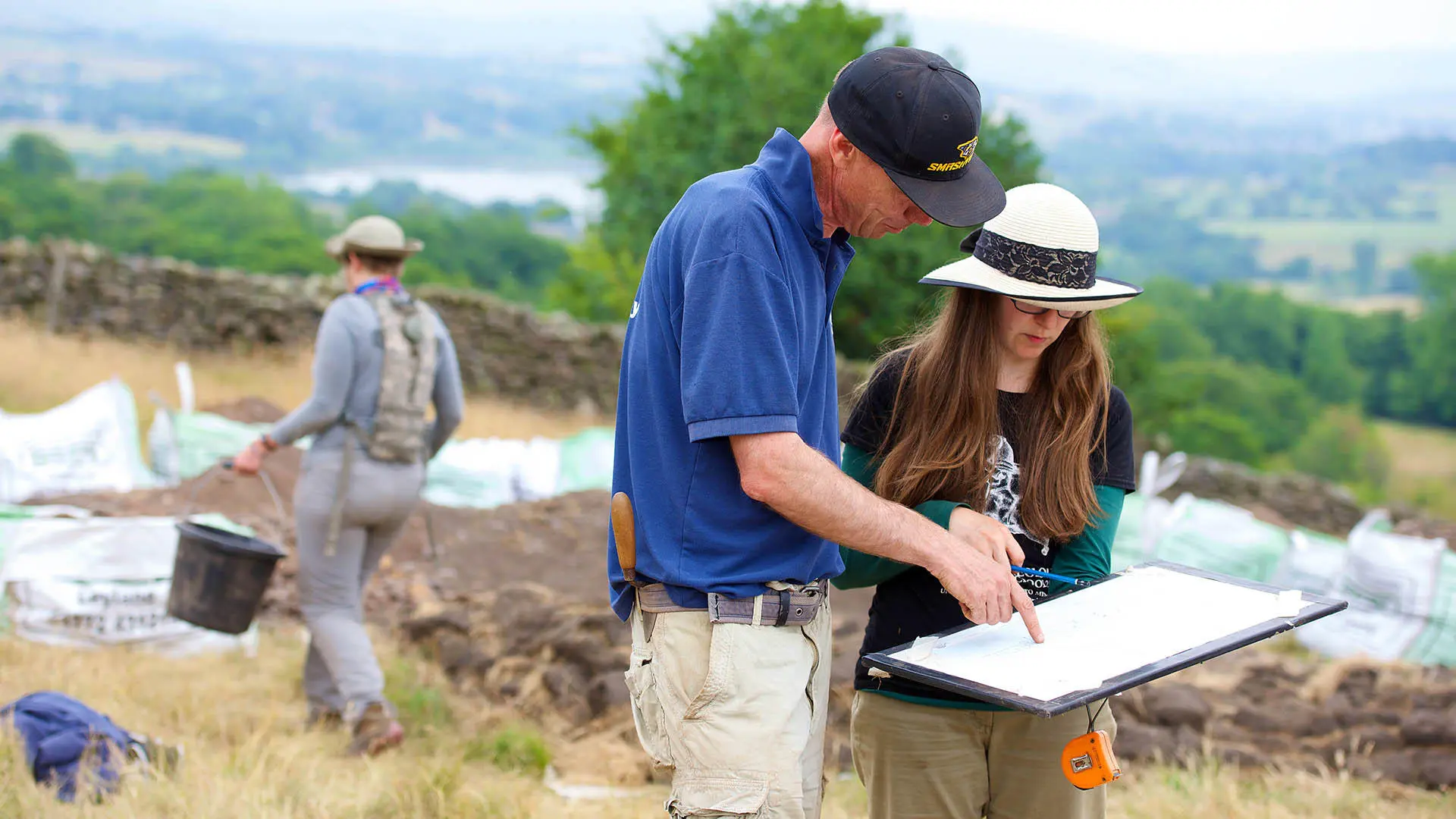In this article, we'll cover:
Key facts
- There is so much more to archaeology than digging for bones
- Typical salaries start at £24,000, up to £40,000
- There are two main routes to becoming an archaeologist
What does an archaeologist do?
Archaeology is the study of the human past by looking at materials left behind by past societies. Archaeologists want to understand the cultures of these societies. This includes things like what the social structures were, what technology or tools were used, their economy, and what their beliefs were.
When most people think of archaeologists they think of excavating in muddy fields. However, there is a wide array of careers that you can go into within archaeology. This can range from creating 3D models to teaching people about archaeological history.
A career in archaeology could be very rewarding, with the opportunity to make new discoveries and travel the world.
Why become an archaeologist?
Archaeology could be an exciting and rewarding career for you. If you are curious about the past, keen to discover new things and want to contribute to our collective knowledge then consider applying for a degree in archaeology.
Studying to become an archaeologist will give you:
- Transferable skills
- Experience of working as part of a team
- Critical analysis skills
- Leadership skills
- Practical, hands on, experience
- Potential for travel
What would my responsibilities be as an archaeologist?
As an archaeologist you could have many different responsibilities, such as:
- Looking at data to understand past cultures.
- Carrying out research and producing journals, reports and sharing knowledge through conferences.
- Working on archaeological sites: excavating and recovering artefacts (objects made or modified by humans, such as tools).
- Recording and documenting findings: this could be in the form of maps, photographs, notes, etc.
- Analysing artefacts. This could be by studying materials or by carrying out laboratory analyses for example.
- Cultural resource management: where you would look at the impact of construction projects on archaeological sites.
- Educating and sharing archaeological findings with the community. This could be through lectures, exhibits and educational programmes.
What kind of jobs could I get as an archaeologist?
There are many varied roles you could go into once you have finished your studies and training. Some examples are:
- Archaeologist: excavating archaeological sites, analysing and document findings.
- Archaeology project manager: running archaeological projects and teams.
- Archivist: cataloguing, organising and preserving records.
- Archaeological researcher: carrying out investigations into a specialist topic.
- Museum curator: managing museum collections and planning exhibitions.
Meet our archaeology graduates
- Article
Meet Charley
Gaining experience
Archaeologist roles are very competitive. Whatever route you take to becoming an archaeologist, having practical experience will put you at an advantage when applying for jobs.
One way to do this is by volunteering. There are lots of pointers for how to volunteer in archaeology on the Council for British Archaeology. Or you could try contacting local archaeology groups.
Support during your archaeologist career
The Chartered Institute for Archaeologists provides a Professional Pathways scheme. This scheme provides resources to help you throughout your career.
You can apply to be accredited by the institute at different levels of you career.
What next?
- Course
Archaeology, MSci
- Course
Archaeology, BSc (Hons)

